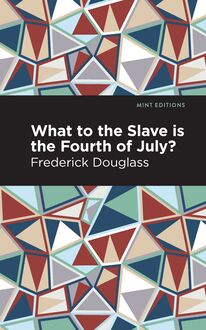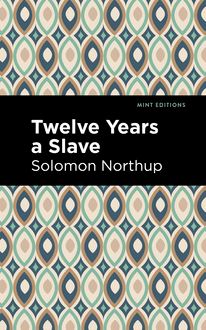-
 Univers
Univers
-
 Ebooks
Ebooks
-
 Livres audio
Livres audio
-
 Presse
Presse
-
 Podcasts
Podcasts
-
 BD
BD
-
 Documents
Documents
-
- Cours
- Révisions
- Ressources pédagogiques
- Sciences de l’éducation
- Manuels scolaires
- Langues
- Travaux de classe
- Annales de BEP
- Etudes supérieures
- Maternelle et primaire
- Fiches de lecture
- Orientation scolaire
- Méthodologie
- Corrigés de devoir
- Annales d’examens et concours
- Annales du bac
- Annales du brevet
- Rapports de stage
La lecture à portée de main
Vous pourrez modifier la taille du texte de cet ouvrage
Découvre YouScribe en t'inscrivant gratuitement
Je m'inscrisDécouvre YouScribe en t'inscrivant gratuitement
Je m'inscrisEn savoir plus
Vous pourrez modifier la taille du texte de cet ouvrage
En savoir plus

Description
Josephine Brown presents a detailed biography of her father, William Wells Brown, who was born on a plantation but escaped to become a successful abolitionist. Biography of an American Bondman by His Daughter is a viable supplement to the original Narrative of William W. Brown: A Fugitive Slave Biography of an American Bondman by His Daughter gives new insight into William Wells Brown’s eventful life. Josephine Brown presents a vivid account of his origins which began on a Kentucky plantation. She explains the glaring power imbalance between enslaved people, their overseers and plantation owners. She also explains how her father was hired out to perform various odd jobs including innkeeper, steamboat captain and even slave trafficker. It was a brutal existence where patience and persistence were key to survival. An illuminating record of one of the most prominent figures in the abolitionist movement. Josephine Brown provides an updated history of her father’s personal and professional achievements. It’s an eye-opening account of William Wells Brown’s revolutionary life. With an eye-catching new cover, and professionally typeset manuscript, this edition of Biography of an American Bondman by His Daughter is both modern and readable.
Sujets
Informations
| Publié par | Mint Editions |
| Date de parution | 21 mai 2021 |
| Nombre de lectures | 0 |
| EAN13 | 9781513279121 |
| Langue | English |
| Poids de l'ouvrage | 1 Mo |
Informations légales : prix de location à la page 0,0300€. Cette information est donnée uniquement à titre indicatif conformément à la législation en vigueur.
Extrait
Biography of an American Bondman by His Daughter
Josephine Brown
Biography of an American Bondman by His Daughter was first published in 1855.
This edition published by Mint Editions 2020.
ISBN 9781513278667 | E-ISBN 9781513279121
Published by Mint Editions®
minteditionbooks.com
Publishing Director: Jennifer Newens
Design & Production: Rachel Lopez Metzger
Project Manager: Micaela Clark
Typesetting: Westchester Publishing Services
“ T HEY who sell mothers by the pound, and children in lots to suit purchasers—what are they? I care not what terms are applied to them, provided they D O apply. If they are not thieves, if they are not tyrants, if they are not men stealers, I should like to know what is their true character, and by what names they may be called.”
— W ILLIAM L LOYD G ARRISON
“L ET us not require too much of slavery.
Let us not insist that the slaves shall never be separated, nor their families broken up,”
—N EHEMIAH A DAMS , D. D.
C ONTENTS P REFACE I II III IV V VI VII VIII IX X XI XII XIII XIV XV XVI XVII XVIII XIX XX XXI XXII XXIII XXIV
P REFACE
While at school in France, I was often beset by my fellow students to know the history of my father, whom they heard was a fugitive from American despotism. To satisfy their curiosity, I wrote out the first ten chapters of the following pages, as I had heard the incidents related. On returning to America last August, and finding that the narrative of my father’s life, written by him, and published some years ago, was out of print, I determined to supply its place; and therefore have added a few more chapters to those written while abroad.
J OSEPHINE B ROWN
I
“Rouse ye, and break the massive chain,
The fetter’d slave that binds;
And check the sorrow and the pain
The wretched negro finds.”
Five different biographies of the subject of the following pages have been published, during the last seven years,—two in the United States and three in Great Britain. Of these, one was translated into German, and appeared in Dresden, and another was published in the French language in Paris. The writer of this, however, fancies that the relation which she holds to the author of “S KETCHES O F P LACES A ND P EOPLE A BROAD ,” gives her an advantage over those who have preceded her.
W ILLIAM W ELLS B ROWN was born on the farm of Dr. John Young, near Lexington, Kentucky, on the 15th of March, 1815. His father’s name was George Higgins, half brother to Dr. Young. The Doctor removed to the State of Missouri, and took with him William and his mother, the former being then an infant. Dr. Young located himself in the interior of the State, sixty miles above St. Louis, in a beautiful and fertile valley, a mile from the river. A finer situation for a farm could scarcely have been selected in any part of the country. With a climate favorable to agriculture, and soil rich, the most splendid crops of tobacco, hemp, flax and grain were produced on the new plantation. On this farm, Elizabeth (William’s mother) was put to work at field service. Distinguished for her strength both of body and mind, and a woman of great courage, Elizabeth was considered one of the most valuable slaves on the place. Although Dr. Young was not thought to be the hardest of masters, he nevertheless employed, as an overseer, a man whose acts of atrocity could scarcely have been surpassed in any of the slave States. Grove Cook was a large, tall man, with rough features, red hair, grey eyes, and large, bushy eyebrows, which gave his face the appearance of a spaniel dog. Like most negro drivers, Cook was addicted to drunkenness, and when the least intoxicated, would use the whip without mercy upon those with whom he came in contact. This was the man selected by Dr. Young to look after his plantation, and superintend its affairs.
William was separated from his mother at an early age, and was but seldom allowed to see her. The young slave was taught by bitter experience the want of a mother’s care and softening influence. At the age of eight years, he was taken into his master’s medical office, and was employed in tending upon the Doctor. As William grew older, he became more serviceable in his new situation. When only about ten years old, the tender feelings of the young slave were much hurt at hearing the cries and screams of his mother, and seeing the driver flogging her with his negro-whip. As he heard the loud, sharp crack of the lash, and the groans of her who was near and dear to him, William felt a cold chill run through his veins. He wept bitterly, but could render no assistance. What could be more heart-rending than to see a dear and beloved one abused without being able to give her the slightest aid? Overseers at the South generally pride themselves upon their ability to break the stubborn spirit of the negro; and the man who shall suffer a slave, male or female, to disobey a rule, without being able to flog him or her for such disobedience, would be immediately discharged by the proprietor. Ability to manage a negro is the first qualification for a good slave-driver. The Doctor had, among his fifty slaves, a man named Randall, of stout frame, and more than six feet in height, and known as the most powerful slave on the farm. If there was heavy work to be done, Randall was always selected to do it; and his task was sure to be finished before any other person’s. The Doctor had flogged every slave on the place but Randall, and he would willingly have whipped him, but that he feared the undertaking, for Randall had often been heard to say, “No white man shall ever whip me; I will die first.” Cook, from the time that he came upon the plantation, had frequently declared that he could and would flog any nigger that was put into the field to work under him.
Doctor Young having been elected to represent his district in the State Legislature, Cook took the entire management of the plantation. The Doctor had repeatedly told him not to attempt to whip Randall, but he was determined to try it. As soon as he was sole dictator, he thought the time had come to put his threats into execution. He soon began to find fault with Randall, and threatened to whip him if he did not do better. One day he gave him a very hard task,—more than he could possibly do,—and at night, the task not being performed, he told Randall that he should remember him the next morning.
On the following morning, after the hands had taken breakfast, Cook called out Randall and told him that he intended to whip him, and ordered him to cross his hands and be tied. The slave asked why he wished to whip him. He answered, because he had not finished his task the day previous. Randall said his task was too great, or he should have done it. Cook said it made no difference, he should whip him. The slave stood silent for a moment, and then said—“Mr. Cook, I have always tried to please you since you have been on the plantation, and I find that you are determined not to be pleased or satisfied with my work, let me do as well as I may. No man has laid hands on me to whip me for the last ten years, and I have long since come to the conclusion not to be whipped by any man living.” Cook, finding by Randall’s looks and gestures that he would resist, called three of the hands from their work, and commanded them to seize the insolent slave and tie him. The men stood still; they knew their fellow-slave to be a powerful man, and were afraid to grapple with him. As soon as Cook had ordered them to seize him, Randall turned to them and said—“Boys, you all know me; you know I can handle any three of you; and the man that lays hands on me shall die. This white man can’t whip me himself, and therefore he has called you to help him.” The overseer was unable to prevail upon them to aid him, and finally ordered them to go to their work.
Nothing was said to Randall by the overseer for more than a week. One morning, however, while the hands were at work in the field, he came into it, accompanied by three friends of his,—Thompson, Woodbridge, and Jones. They came up to where Randall was at work, and Cook ordered him to leave and go with them to the barn. He refused to go; whereupon he was attacked by the overseer and his companions, when he turned upon them, and laid them one after another prostrate before him. Woodbridge drew out his pistol and fired at him, and brought him to the ground. The others rushed upon him with their clubs, and beat him over the head and face until they succeeded in tying him. He was then taken to a barn and tied to a beam. Cook gave him above one hundred lashes with a heavy cowhide, had his wounds washed with salt and water, and left him tied during the night. The next day, he was untied, and taken to a blacksmith’s shop, and had a ball and chain attached to his leg. He was compelled to labor in the field, and perform the same amount of work other hands did.
When the Doctor returned home, he was pleased to find that Randall had been subdued in his absence, and highly praised the overseer for his good qualities as a negro-breaker.
The negro quarters were situated some distance from the master’s mansion, or “great house,” as it was called. The cabins were built of wood, with only one room, and no floor. The owner seldom provides bed and bedding for his slave, unless merely to give each one a coarse blanket; and those who are so fortunate as to get more than this, think themselves luxurious livers. The blowing of the horn and the ringing of the bell were the signals for Dr. Young’s slaves to start in the morning to their daily toil, which lasted from twelve to fourteen hours. Being employed either as house servant, or in his master’s medical department, William was exempt from the call of the horn and bell. Nevertheless, his life was a hard one. Nearly related to the Doctor, Mrs. Young was always punishing the young slave for some supposed offence, which, after all, was only because she fel
-
 Univers
Univers
-
 Ebooks
Ebooks
-
 Livres audio
Livres audio
-
 Presse
Presse
-
 Podcasts
Podcasts
-
 BD
BD
-
 Documents
Documents
-
Jeunesse
-
Littérature
-
Ressources professionnelles
-
Santé et bien-être
-
Savoirs
-
Education
-
Loisirs et hobbies
-
Art, musique et cinéma
-
Actualité et débat de société
-
Jeunesse
-
Littérature
-
Ressources professionnelles
-
Santé et bien-être
-
Savoirs
-
Education
-
Loisirs et hobbies
-
Art, musique et cinéma
-
Actualité et débat de société
-
Actualités
-
Lifestyle
-
Presse jeunesse
-
Presse professionnelle
-
Pratique
-
Presse sportive
-
Presse internationale
-
Culture & Médias
-
Action et Aventures
-
Science-fiction et Fantasy
-
Société
-
Jeunesse
-
Littérature
-
Ressources professionnelles
-
Santé et bien-être
-
Savoirs
-
Education
-
Loisirs et hobbies
-
Art, musique et cinéma
-
Actualité et débat de société
- Cours
- Révisions
- Ressources pédagogiques
- Sciences de l’éducation
- Manuels scolaires
- Langues
- Travaux de classe
- Annales de BEP
- Etudes supérieures
- Maternelle et primaire
- Fiches de lecture
- Orientation scolaire
- Méthodologie
- Corrigés de devoir
- Annales d’examens et concours
- Annales du bac
- Annales du brevet
- Rapports de stage




















